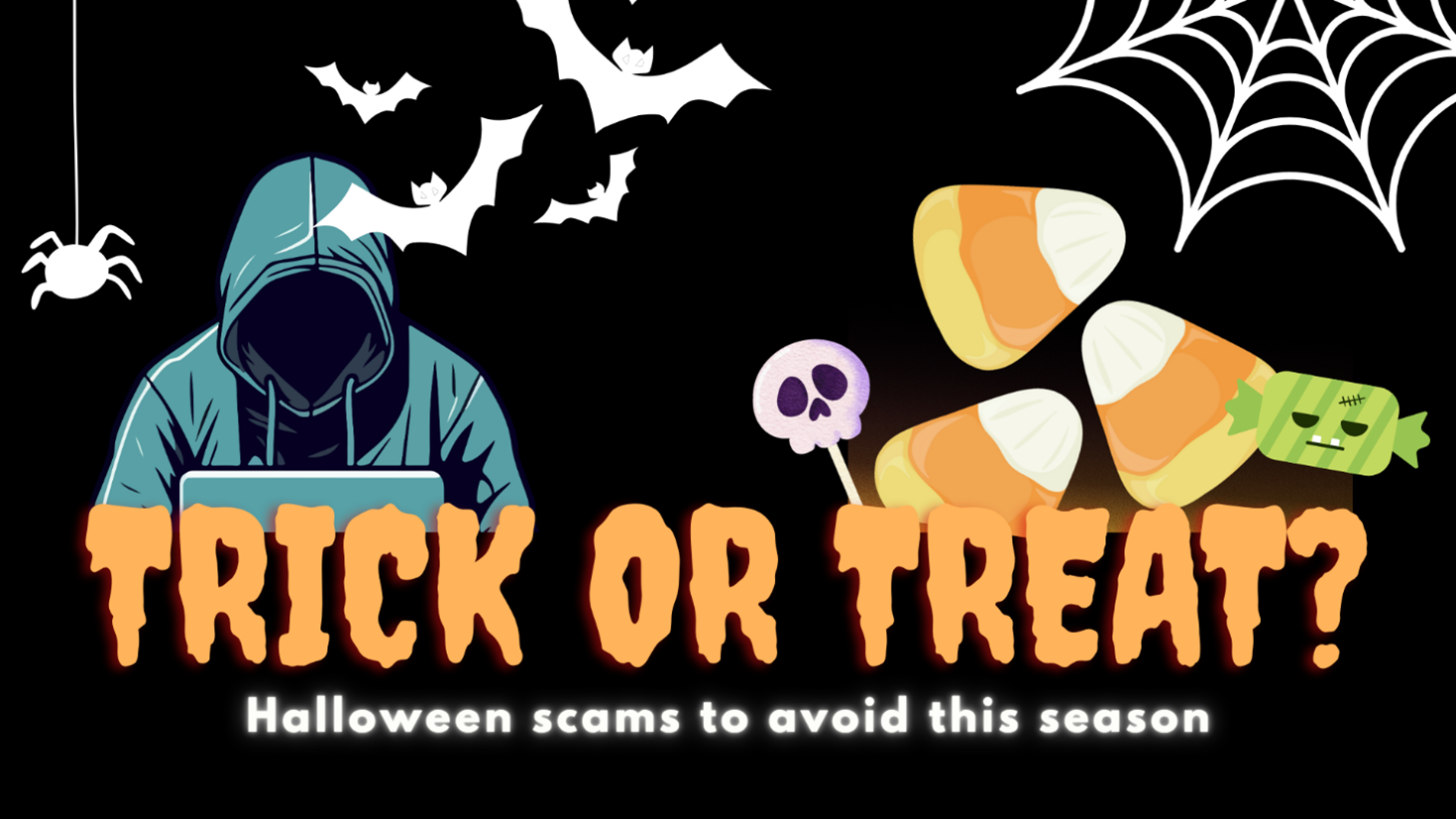- Office of Consumer Affairs and Business Regulation

From shady costume websites to amazing candy deals, scammers have been getting creative in tricking consumers into buying “treats.” Here are some common Halloween scams haunting consumers this season.
Fake Tickets and Attractions
During this spooky season, haunted houses and theme parks offer thrilling experiences for visitors with the purchase of a ticket online. Scammers take advantage of the popularity of these events and create fake ticket listings.
Sometimes using a copy of a legitimate event, scammers promote an experience on social media, claiming that the event is “exclusive.” By creating a fake event or reusing the same QR code to tickets for another event, scammers get payment from visitors and eventually “ghost” the buyer.
Costumes that Underdeliver
There are many websites claiming to have “flash deals” for “premium quality” Halloween costumes. However, when the item is delivered, the costume does not look like the photos on the website and the low-quality leads to tearing after one wear.
According to Trustpilot, scam victims have reported these additional fraudulent costume tricks:
- Fake tracking information: When customers request tracking information for their purchased items, scammers send a fake tracking notice, claiming that the items are “ready to ship.” However, the items are never delivered to the customer, and the scammer never replies to messages.
- Multiple charges: Customers are charged multiple times for one costume or fully charged without receiving all parts of the costume.
- False advertising: The costume as described when the customer purchases is not received and instead a completely different costume or size is delivered.
- Misleading expectations: To encourage quick purchasing, some fake websites claim that they will deliver a product within 24 hours to ensure that customers get their items on time, but the item does not arrive.
Fraudulent Halloween Websites
To gain trust from customers, scammers will try to make their website look like other legitimate retailers such as Spirit Halloween. A lot of time is spent replicating the website, creating domain names related to Halloween, and taking photos from other websites. How do you know if a website is legitimate?
Here are some tips to help you detect a fake Halloween website:
- Prices are too good to be true: If an item is extremely cheap compared to other retailers or offered as a limited time only sale item, scammers might be trying to create a sense of urgency to get victims to spend their money faster.
- Customer reviews: A retail website without customer reviews or online presence can indicate that it is new or hiding testimonials from other purchasers.
- Payment options: Scam websites usually only allow payments with wire transfers or gift cards so that customers are unable to get a refund with credit cards.
- Fake links: Before clicking on any links, check for misspellings or strange URLs by hovering over the link to reveal the full URL. If the domain is overly long with random characters or it is unclear where the link will take you, play it safe and do not click!
Don’t get tricked this Halloween and watch out for fraudulent activity. Criminals are getting more creative with how they lure people into scams, so be alert when shopping. Stay away from “eerie-sistable” online deals!

